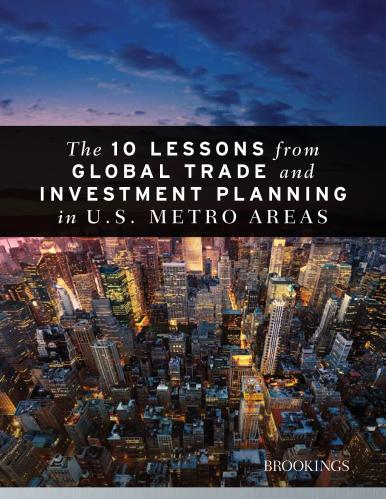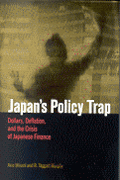Universities are known regional economic catalysts, spinning off jobs and ideas that can become businesses. Increasingly, they are also working directly with companies, including efforts related to exports.
A good example of this new role for universities can be found in Los Angeles where, as part of the Los Angeles Regional Export Council (LARExC), the USC Marshall School of Business and the UCLA Anderson School of Management have created the Export Champions program. This initiative connects MBA student teams with ready-to-export companies in the region during the semester. The students, who typically come to the table with relevant professional experience and foreign language skills, work on a $10,000 marketing strategy for the firm, helping select target markets and even traveling to evaluate potential distributors and clients.
The early stage entry into global sales or new markets is when small and medium companies require the most help, as returns are often not realized for at least a few years. These firms need pathfinders to develop a plan to match current products to global opportunities.
Take Pelican Products, a Greater Los Angeles-based manufacturer of high-performance cases and lighting equipment used by law enforcement, the military, consumers and others. Even though firm had a popular product and was experiencing solid growth from domestic sales, its early attempts to enter and establish a presence in new global markets proved to be a significant challenge.
Pelican faced questions on export destinations, product mix, logistics, and regulatory requirements. According to Scott Ermeti, Pelican’s vice president of international sales, “in the early days, we were not aware of the many good programs that were available in Southern California to help us move into foreign markets. I wish we had been, because we could have moved up the export curve much faster.”
Now, Pelican is doing just that: while the company now exports to more than 100 countries, it recently contracted with a USC Marshall Export Champion team to conduct a feasibility study for new modes of entry into Asia. “We partnered with the USC team for three reasons: reasonable cost, good quality output and quick turnaround,” Ermeti explained. “These are young, bright, eager, and very knowledgeable people who get the business environment in Asia because many of them come from there, and many of them have three to eight years of direct work experience in Asia.”
The Greater Los Angeles program is just one of a growing number: Syracuse University was an early innovator, with a student-driven export promotion program at the university’s Center for International Business that dates back to 1998. In Columbus, Ohio State’s Ohio Export Internship Program at Fisher College of Business trains students in export and trade-related topics and then places them with local companies to work on export strategies. The University of Kentucky and the University of California, San Diego’s School of International Relations and Pacific Studies have similar engagement with local businesses and economic development efforts on exports.
The benefits are many as the programs serve as tools to connect skilled and globally-trained students to local industry, keep local graduates in the region, and better connect universities to regional economic development efforts and players.
The initiative featured here emerged from work begun under the Brookings-Rockefeller Project on State and Metropolitan Innovation and continued through the Global Cities Initiative: A Joint Project of Brookings and JP Morgan Chase. Brookings recognizes that the value it provides is in its absolute commitment to quality, independence, and impact. Activities supported by its donors reflect this commitment and the analysis and recommendations are solely determined by the scholar.
The Brookings Institution is committed to quality, independence, and impact.
We are supported by a diverse array of funders. In line with our values and policies, each Brookings publication represents the sole views of its author(s).











Commentary
A Global Role for Universities: Helping Firms Boost Exports
November 18, 2014